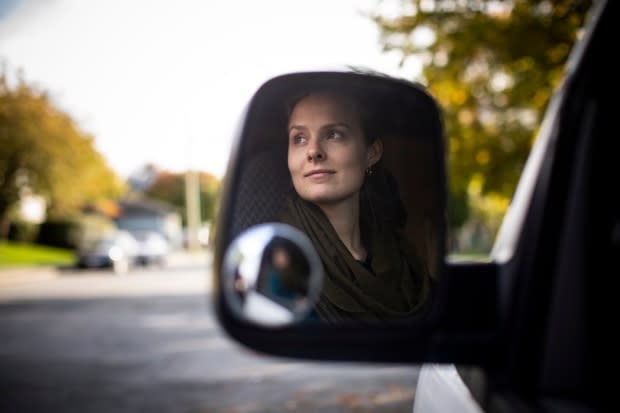U.S. border guards detain Canadian woman for 5 hours, refuse entry without visa
A Vancouver woman is afraid to try to enter the United States after she was held for hours without reason and eventually denied entry at a border crossing — a situation immigration lawyers say is becoming more common.
Software developer Jaklyn De Vos had planned to visit her godfather in Seattle, Wash., in April when she and her partner were brought in for questioning at the Sumas border crossing in Abbotsford, B.C.
After nearly five hours, a border patrol officer told her she was denied entry and that she would need a visa — something not normally required for Canadians at land border crossings — to enter the U.S. again. With no criminal record or history of problems entering the U.S., De Vos said she can't understand why she has not been given an explanation. The denial didn't apply to her partner, but the two decided to turn around and return to Vancouver.
"I have friends and family in the states that I'd like to see, so it's definitely frustrating not to be able to do that or have any information about it," De Vos said.
She also said nearly three hours into the ordeal, the border guards asked to see her and her partner's cellphones and wallets.
"It just seemed easier to comply," she said. "It was kind of a scary situation, anyway, being detained for so long."

'Definitely something in the water'
Lawyers say they have seen an uptick in the number of Canadians being denied entry, or even being banned from crossing into the U.S.
"There's definitely something in the water right now.… We are seeing unusual denials and unusual requests we haven't seen in years prior," said Mark Belanger with Border Solutions Law Group.
Belanger said the easiest thing for people to do in situations similar to De Vos's is to refuse their own entry.
"That's technically a withdrawal of your request for admission, and they will release her back into Canada," he said, even if someone is held for questioning.
Belanger also said there are a number of options for recourse.
"You can apply for an actual visa at the U.S. consulate here in Vancouver, and at the interview for the visa, you can ask questions about your case and find out some information," he said.
Belanger also recommended filing a complaint on TRIPS, the U.S. Customs and Border Protection (CBP) traveller redress program. De Vos said that also led to a dead end.
"I just recently … noticed that my case said closed on it, but I still haven't received any letter," she said.
A spokesperson for the CBP acknowledged the increase of "expedited removals" from the U.S. and said it was not due to policy changes or quotas within the department.
De Vos goes to the U.S. regularly to visit friends and family and has never had trouble entering the country before, but April's ordeal has her reconsidering those plans. She has not attempted to visit the country since then.
"It's definitely hard especially being so close to the border. We like to go down to go skiing and enjoy the nature there," she said. "I don't really want to get detained again."

